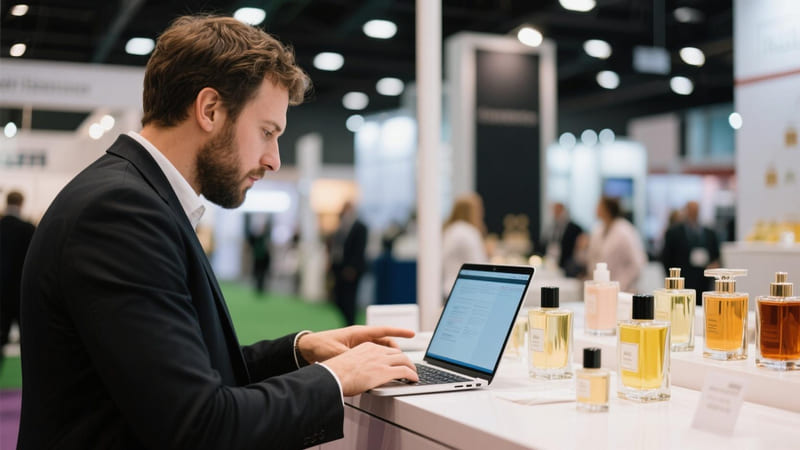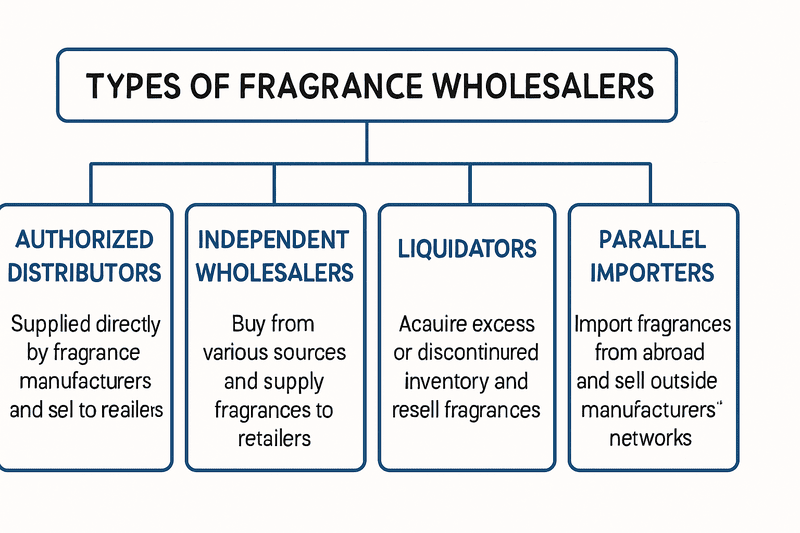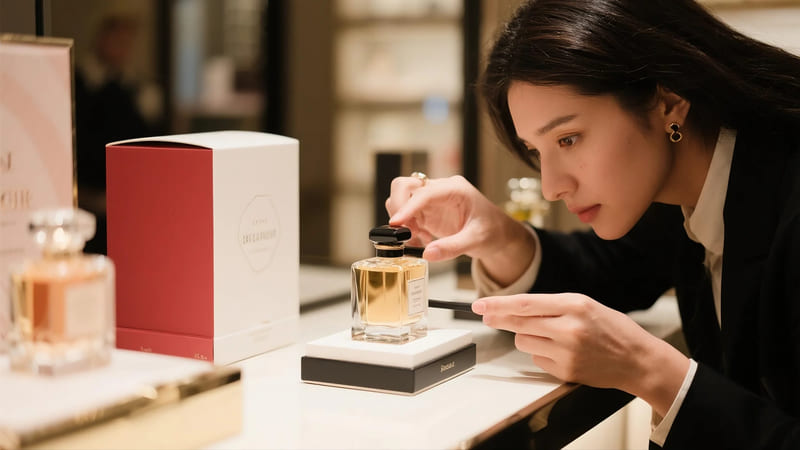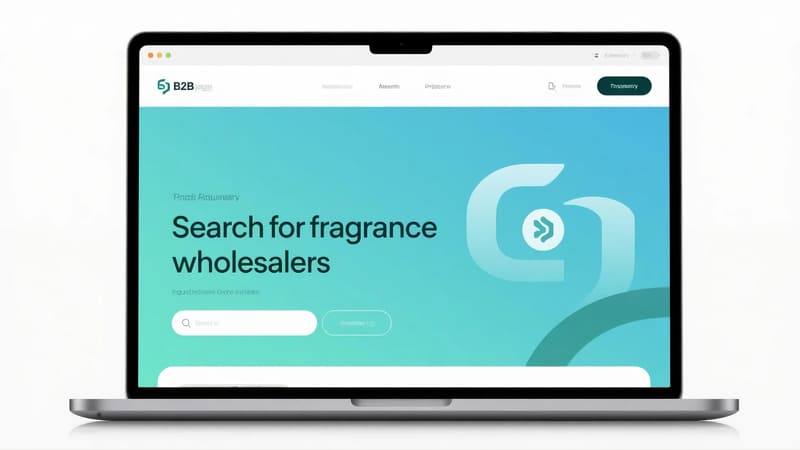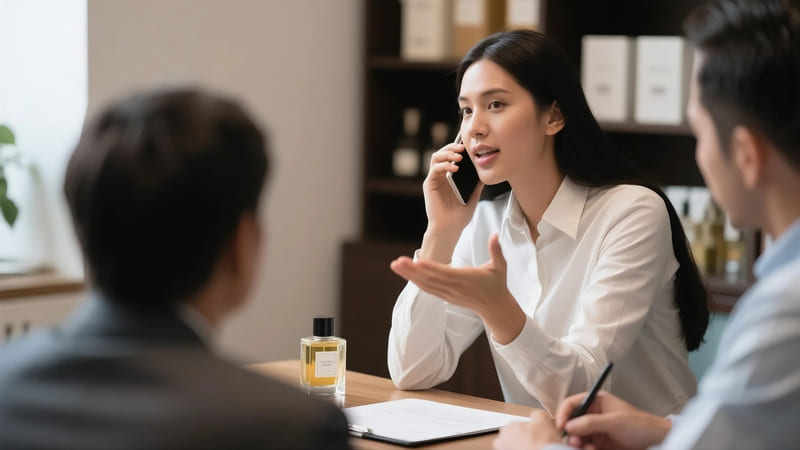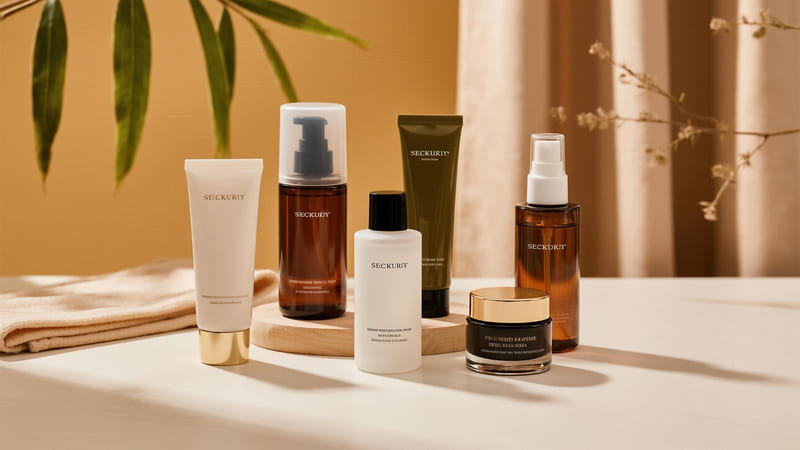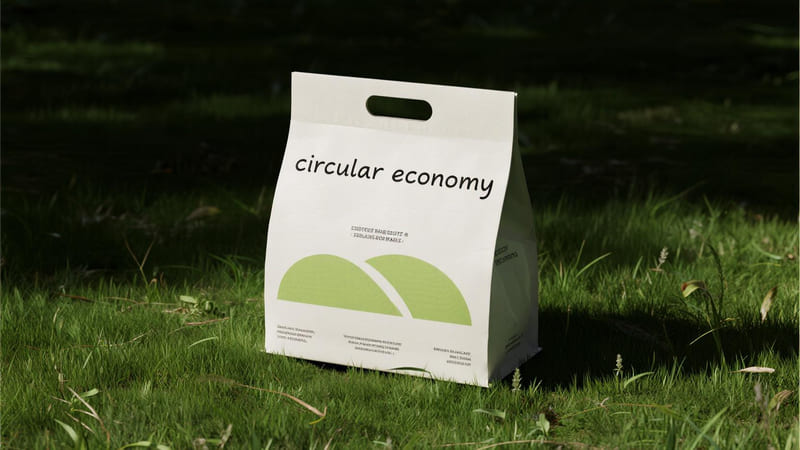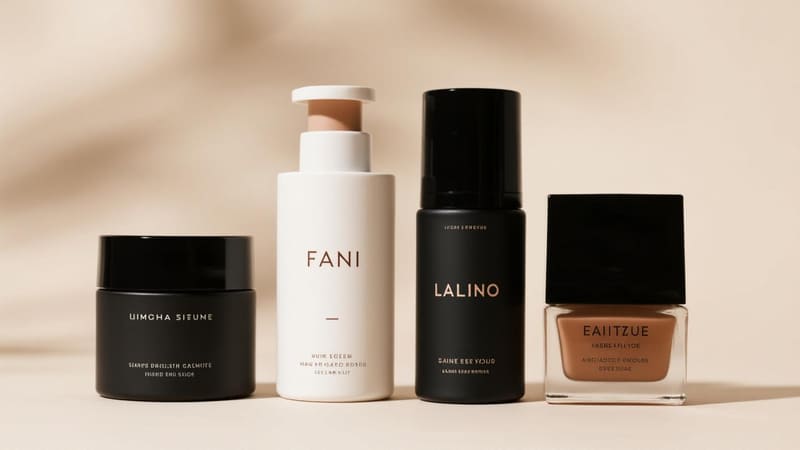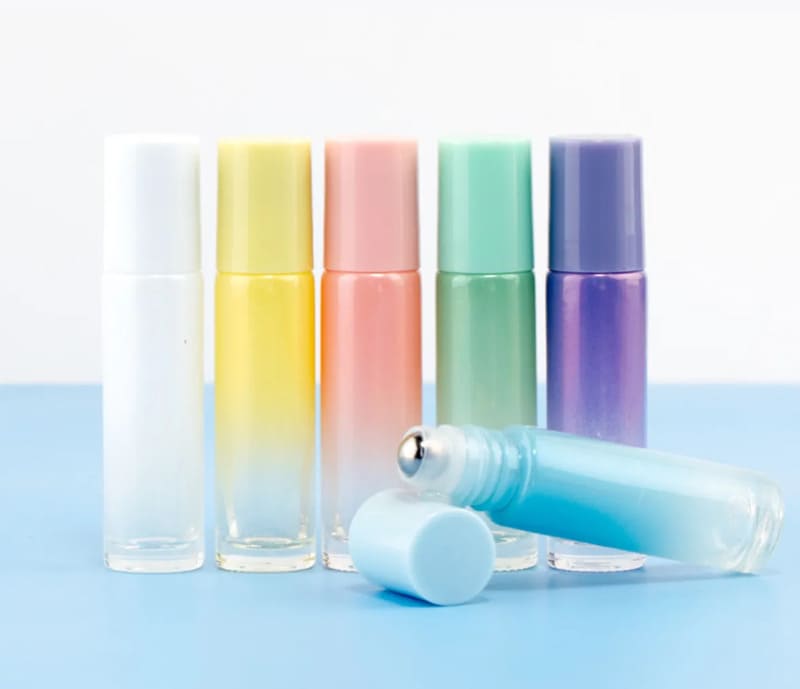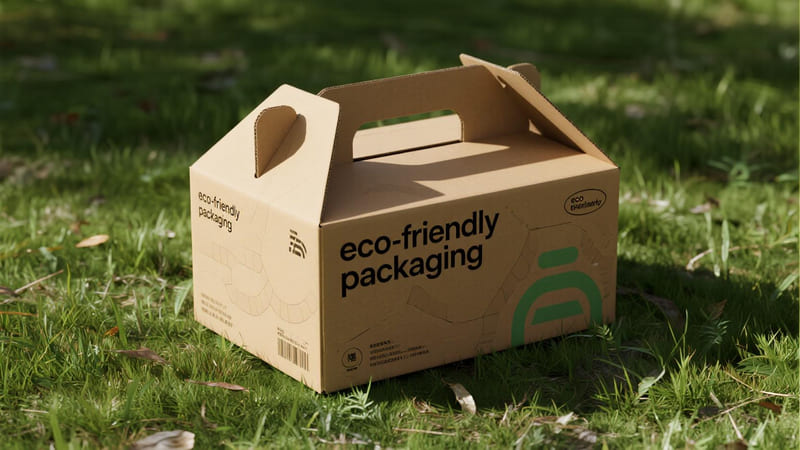Finding reliable wholesalers for fragrances and perfumes is a crucial step for retailers, e-commerce businesses, or distributors looking to stock these popular and often high-value items. It requires diligent research and networking to connect with legitimate sources offering authentic products at competitive prices.
Someone can find wholesalers of fragrances and perfumes by attending industry trade shows, utilizing online B2B marketplaces, searching specialized wholesale directories, networking within the beauty/fragrance industry, contacting fragrance distributors directly, or sometimes by inquiring with brand manufacturers about authorized distribution channels.
Sourcing fragrances wholesale can be complex due to issues like authenticity, minimum order quantities, and navigating distribution agreements. While ShineTop is a packaging manufacturer, not a fragrance wholesaler, we work with many brands in the perfume industry, providing them with custom bottles and luxury boxes, so I understand the importance of a good supply chain. Let’s explore how to find these wholesale sources.
What are the Different Types of Fragrance Wholesalers?
Fragrance wholesalers vary in their scale, the types of brands they carry, and their business models. Understanding these differences can help you target your search more effectively.
Different types of fragrance wholesalers include: 1. Authorized Distributors (officially appointed by brands), 2. Independent Wholesalers/Jobbers (sourcing from various channels, including overstock or closeouts), 3. Master Wholesalers (large-scale, often supplying other smaller wholesalers), and 4. Online B2B Platforms that connect buyers with numerous global wholesalers and manufacturers.
Each type has its pros and cons depending on your business needs.
Types of Wholesalers:
-
Authorized Distributors:
- Definition: Companies officially appointed by fragrance brands or their parent companies (e.g., LVMH, Coty, Estée Lauder Companies) to distribute their products within a specific geographic region or to certain types of retailers.
- Pros: Guaranteed authenticity, direct access to new launches, often provide marketing support.
- Cons: Usually have stricter requirements for opening an account (e.g., physical storefront, minimum order volumes), may have less flexible pricing.
- How to Find: Often by contacting the fragrance brand directly and inquiring about authorized distributors in your region.
-
Independent Wholesalers / Jobbers:
- Definition: These businesses source fragrances from a variety of channels, which might include overstock from retailers, closeouts, parallel imports (authentic products sourced from distributors in other countries where prices might be lower), or sometimes directly from smaller brands.
- Pros: Can offer a wider variety of brands (including niche or discontinued ones), potentially more competitive pricing, often lower MOQs.
- Cons: Higher risk of encountering counterfeit or old stock if not vetted carefully. Authenticity verification is crucial.
-
Master Wholesalers / Large-Scale Importers:
- Definition: Operate at a very large volume, often importing directly and supplying to smaller wholesalers, distributors, and large retail chains.
- Pros: Can offer very competitive pricing for bulk purchases.
- Cons: Very high MOQs, usually cater to established, high-volume businesses.
-
Online B2B Marketplaces & Platforms:
- Definition: Websites that connect buyers with numerous wholesalers and manufacturers from around the world (e.g., Alibaba, DHGate for some types of stock or unbranded fragrance oils; more specialized beauty B2B sites).
- Pros: Wide selection, ability to compare suppliers.
- Cons: Requires extreme diligence in vetting suppliers for authenticity and reliability, especially for branded designer fragrances. Often better for sourcing fragrance oils for own-brand production rather than finished branded goods.
-
Specialty Fragrance Oil Wholesalers (for candle/soap making, indie perfumery):
- Definition: Focus on supplying concentrated fragrance oils (synthetic or natural blends) intended for use in creating other products, not finished retail perfumes.
- Pros: Wide variety of scents, often provide documentation (IFRA conformity, SDS).
- Cons: Not for reselling branded perfumes.
When searching, clarify what type of fragrance products you’re looking for (designer brands, niche brands, fragrance oils for production) as this will guide you to the right type of wholesaler.
How to Verify the Authenticity of Wholesale Fragrances?
A major concern when buying wholesale fragrances, especially from independent wholesalers or online platforms, is the risk of counterfeit products. Verifying authenticity is paramount to protect your business and customers.
To verify the authenticity of wholesale fragrances: 1. Source from authorized distributors whenever possible. 2. Scrutinize packaging details (printing quality, cellophane wrap, batch codes, bottle quality). 3. Check batch codes online or with the brand. 4. Be wary of prices that are "too good to be true." 5. Request samples and inspect them carefully. 6. Build relationships with reputable, long-standing suppliers.
Counterfeit fragrances can damage your reputation and even pose health risks to consumers.
Steps for Verification:
-
Supplier Reputation & Due Diligence:
- Prioritize Authorized Distributors: This is the safest route for guaranteed authentic branded perfumes.
- Research Independent Wholesalers: Check their business history, reviews, and ask for references. How long have they been operating? Do they have a professional setup?
- Beware of Unrealistic Deals: Extremely low prices on popular luxury fragrances are a major red flag.
-
Inspect Packaging Meticulously (When you receive samples or initial orders):
- Cellophane Wrap: Authentic perfumes usually have tightly wrapped, neat cellophane. Sloppy wrapping or thick, crinkly cellophane can be a sign.
- Box Quality: Look for high-quality paperboard, crisp printing, accurate colors, and perfectly aligned text. Spelling errors or blurry graphics are red flags. (At ShineTop, we produce luxury perfume boxes, so we know the level of detail expected).
- Bottle Quality: Authentic bottles are made from high-quality glass with no air bubbles or imperfections. The glass should be smooth and evenly shaped. Caps should fit snugly and be made of quality materials.
- Labels & Printing on Bottle: Should be perfectly centered, clear, and without smudges or errors.
- Batch Codes: A batch code should be printed or etched on the bottle (usually the bottom) AND should match a batch code on the bottom of the retail box. These codes can sometimes be checked online on sites like CheckFresh.com, though these sites are not always 100% definitive.
- Symmetry & Consistency: Logos, brand names, and design elements should be perfectly symmetrical and consistent with what you see on the brand’s official website or in reputable department stores.
-
Examine the Fragrance Itself:
- Color: Should match the authentic product. Unusual coloration can be a warning.
- Scent: This is harder to judge without a direct comparison, but counterfeit fragrances often have a harsh, alcoholic opening, a weaker overall scent, or don’t have the same complexity and longevity as the original.
- Oiliness/Residue: Authentic perfumes shouldn’t feel overly oily or leave a strange residue on the skin.
-
Request Documentation (from supplier):
- Ask about their sourcing – can they provide any proof of legitimate supply chains (though many independent wholesalers will be guarded about their specific sources).
-
Start with Small Orders:
- Before committing to a large purchase from a new, unverified supplier, place a small test order to thoroughly inspect the products.
Building trust with a few reliable, reputable wholesalers is often better than constantly chasing the lowest price from unknown sources.
What are the Best Online Platforms to Find Fragrance Wholesalers?
The internet offers numerous platforms, but quality and legitimacy can vary wildly, especially for high-end branded fragrances. It’s crucial to differentiate between platforms for finished goods versus raw fragrance oils.
For finished branded fragrances, directly contacting brands for authorized distributor lists or exploring highly vetted, industry-specific B2B platforms (often requiring business verification) are safer online routes. General B2B marketplaces like Alibaba or DHGate are more commonly used for sourcing unbranded fragrance oils, packaging components (like bottles ShineTop might offer), or potentially "inspired by" fragrances, but carry higher risks for authentic designer perfumes.
Caution is key when sourcing branded luxury goods online.
Online Sourcing Avenues:
-
For Authentic Branded Perfumes (Higher End):
- Brand Websites (Distributor Inquiries): The most reliable first step. Many major fragrance houses will have information for retailers or direct you to their regional authorized distributors.
- Specialized Beauty/Luxury B2B Platforms: Some platforms cater specifically to the beauty industry and may have more vetted suppliers of authentic goods. These often require business registration and verification to access. Examples might include platforms focused on connecting brands with retailers in the luxury segment.
- Industry Association Directories: Organizations related to fragrance or beauty retail might have directories of member distributors.
-
For Broader Range / Independent Wholesalers (Requires Extreme Vetting):
- TopTenWholesale.com, WholesaleCentral.com: General wholesale directories where you might find fragrance distributors, but due diligence is paramount.
- Liquidation Platforms: Sites that sell overstock or closeout merchandise. Fragrances can appear here, but authenticity and condition must be carefully checked.
-
For Fragrance Oils (for making your own scented products) & Packaging Components:
- Alibaba, Made-in-China: Excellent for sourcing bulk fragrance oils (for candles, soaps, diffusers, own-brand perfumes), essential oils, and packaging components like glass bottles, caps, sprayers, and boxes. ShineTop, for example, connects with many international clients seeking custom perfume packaging through these platforms.
- Specialty Fragrance Oil Suppliers’ Websites: Companies like Bramble Berry, The Flaming Candle (US), or many others globally specialize in supplying fragrance oils and ingredients to crafters and businesses.
Key Warning for Branded Goods on General B2B Sites: Be extremely cautious if you see well-known designer fragrances offered at very low prices on general B2B marketplaces by unverified sellers. The risk of counterfeits is very high. These platforms are generally more reliable for unbranded components or if you are dealing directly with a highly reputable and verified manufacturer of packaging or raw ingredients.
What Questions to Ask a Potential Fragrance Wholesaler?
Asking the right questions upfront can save you a lot of trouble and help you identify legitimate, reliable wholesale partners for fragrances.
Key questions to ask a potential fragrance wholesaler include: "Are you an authorized distributor for the brands you carry?", "What are your MOQs and pricing tiers?", "Can you provide proof of authenticity or details about your supply chain?", "What is your policy on returns or damaged goods?", "Do you provide batch codes for products?", and "Can I get a product list with current availability and pricing?"
Your questions should aim to assess their legitimacy, reliability, and suitability for your business.
Essential Questions:
About Legitimacy & Authenticity:
- Are you an authorized distributor for the specific brands I am interested in? If so, for which region?
- If not an authorized distributor, how do you source your products and ensure their authenticity? (They may not reveal exact sources, but their answer can be telling).
- Can you provide batch codes for the products? (This allows you to do some independent verification).
- Do you guarantee the authenticity of all products sold? What is your policy if a product is found to be non-authentic?
About Products & Pricing:
- Can you provide a current product catalog or price list, including brand names, product sizes, and wholesale prices?
- What are your Minimum Order Quantities (MOQs) per product or per order?
- Do you offer tiered pricing for larger volumes?
- Are there any restrictions on which brands or products I can purchase based on my business type or location?
- How frequently do you receive new stock or new launches?
About Operations & Logistics:
- What are your payment terms?
- What are your typical lead times from order placement to shipping?
- What shipping methods do you use, and can you provide estimated shipping costs? Do you ship internationally?
- What is your policy for damaged goods received during shipment or for order discrepancies?
- Do you have a return policy for unsold merchandise (less common, but worth asking for some types of wholesalers)?
- What business documentation do I need to provide to open an account (e.g., business license, resale certificate)?
About Their Business:
- How long has your company been in the fragrance wholesale business?
- Can you provide references from other retailers you supply (if they are willing)?
A reputable wholesaler should be willing and able to answer these questions clearly and professionally. Evasiveness or unwillingness to discuss authenticity should be a major red flag. For instance, when brands approach ShineTop for custom perfume packaging, we are always transparent about our materials, processes, MOQs, and lead times, which builds trust.
Conclusion
Finding reputable wholesalers of fragrances and perfumes requires a blend of diligent online research, industry networking, and meticulous vetting. Prioritizing authorized distributors for branded goods is the safest path to ensure authenticity. For other avenues, careful inspection of products, scrutiny of supplier credentials, and asking pointed questions are essential. By being thorough and cautious, businesses can build reliable supply chains for these desirable and often high-margin products, ensuring they offer genuine quality to their customers.

